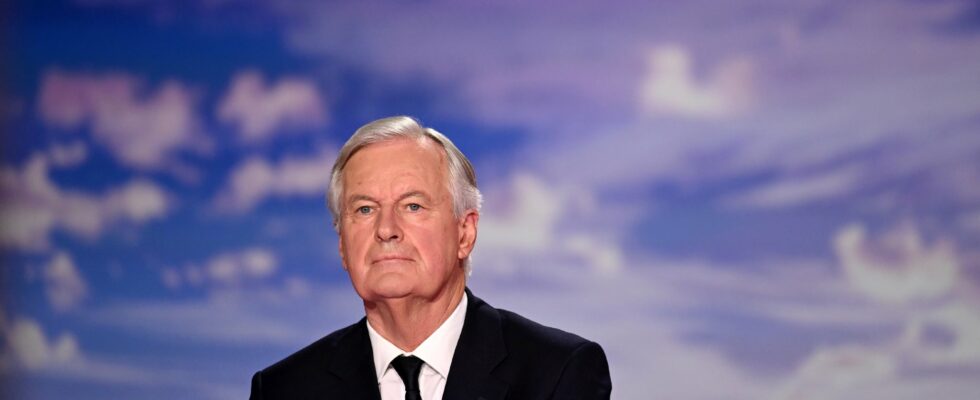The schedule of the new ministers of the Barnier government is set to be tight: in the next two weeks, the 39 new members will complete the crucial steps in its establishment, from the general policy speech to the presentation of the budget, which has already been delayed by an unprecedented amount. A start that could nevertheless be slowed down by the motion of censure that the left bloc has already announced it will present as soon as Michel Barnier’s speech, scheduled before the Assembly on October 1.
Council of Ministers at 3 p.m.
Emmanuel Macron will bring together Michel Barnier’s new government in full, that is to say its 39 members, this Monday at 3 p.m. for a Council of Ministers, the Elysée announced on Saturday. It is during this council that the main political axes and the first decisions of Michel Barnier’s government will be discussed for the first time behind closed doors, who himself clarified the positions of his newly formed government on the set of France 2 on Sunday evening.
This Council of Ministers will have been preceded by a “government breakfast” to welcome the ministers to Matignon at 8 a.m., who will then take up their respective ministries from 10 a.m., during the traditional handover ceremonies.
General policy speech on October 1
Michel Barnier will deliver his general policy speech before the National Assembly on Tuesday, October 1. The next crucial step for the new government, this speech allows each new tenant of Matignon to give the broad guidelines of his program, and to present to the deputies and senators the reforms or bills that the government wishes to defend during its term. Pension reform, LGBT rights, public finances, immigration… Michel Barnier has already given the broad outlines of the policy he wishes to pursue on the France 2 set on Sunday evening. A speech should also be given in the Senate by another senior member of the government.
Although it is not a constitutional obligation, it is customary following the general policy speech to submit one’s declaration to a vote of confidence by the deputies. In 2022, however, Élisabeth Borne had made it known that she would not submit to it. Lacking an absolute majority in the National Assembly, she did not want to be disavowed and be obliged to resign if the parliamentarians had refused to give her their confidence. A situation that Gabriel Attal had repeated. According to the communist deputy Stéphane Peu, Michel Barnier, approached by the party leaders, also “does not envisage” a vote of confidence.
Motion of censure in the wake
The left has already announced it: it will file a motion of censure immediately after Michel Barnier’s general policy speech on October 1. This motion can only be voted on 48 hours after it is filed. It is the PS that will file the motion of censure on behalf of the left-wing coalition of the New Popular Front, indicated the leader of the Socialist Party Olivier Faure. The leader of the radical left Jean-Luc Mélenchon called for “getting rid of this “government of losers” as soon as possible, which according to him has “neither legitimacy nor future”. However, to succeed, this motion of censure will have to receive the votes of the National Rally, Marine Le Pen’s far-right party, which is unlikely for the moment, by Olivier Faure’s own admission.
Budget presentation on October 9?
The development of the 2025 budget, which has already been delayed by an unprecedented amount, is the number one emergency in a very tense economic context. It should a priori be presented on October 9, instead of the traditional October 1. While the Macronists refuse any increase in taxes, Michel Barnier has promised not to “further increase taxes on all French people”, particularly on the working and middle classes. It is “the richest who must take part in the solidarity effort” warned the LR Prime Minister, without directly commenting on a reestablishment of the ISF, eagerly demanded by the left.
According to The Tribune And The EchoesMichel Barnier would consider not tax increases on all French people, but something similar: a freeze on income tax scales, which would not be reassessed by the amount of inflation, as is the case almost every year. This would result in making a little more French people from the middle and upper classes pay a little more income tax, for a gain of four billion euros. Finally, the executive could propose to Brussels a postponement until 2029 of the return to below 3% deficit, according to The TribuneThe country’s deficit has spiralled out of control in recent years, currently standing at more than 5% of GDP, while the European Union requires its members to keep their deficits below 3% of GDP.
